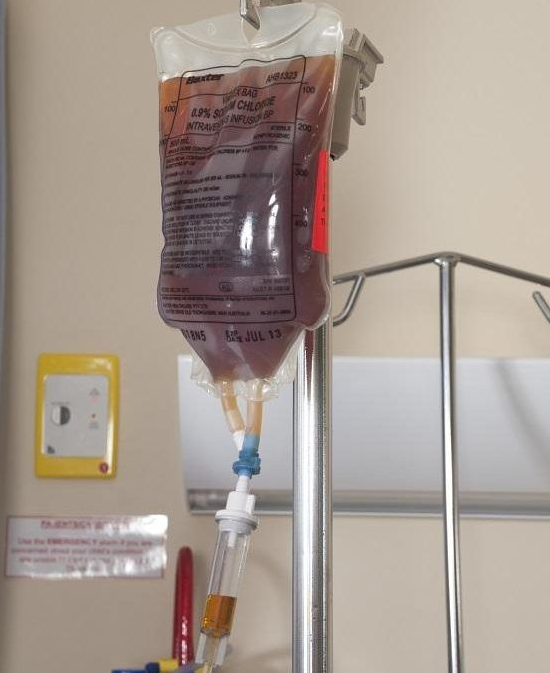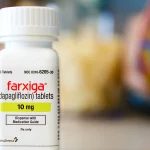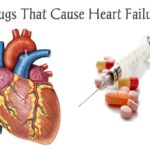Does Intravenous (IV) Iron Supplementation Help Patients With Heart Failure?

Heart failure (HF), also known as congestive heart failure (CHF), is a chronic medical condition characterized by the heart’s inability to efficiently pump blood to meet the body’s oxygen and nutrient requirements. Contrary to its name, heart failure does not imply a complete cessation of heart function; instead, it signifies an impairment in the heart’s pumping capacity.
Heart failure is a prevalent and growing global health issue, affecting millions of individuals worldwide. Its prevalence is on the rise due to an aging population, an increasing prevalence of risk factors such as hypertension and diabetes, and advances in medical care that allow more people with heart conditions to live longer. In the United States alone, it is estimated that over 6 million adults have heart failure, and millions more are at risk of developing it. It remains a leading cause of hospitalization and healthcare expenditures, emphasizing the need for continued research, prevention, and effective management strategies to address this widespread cardiovascular disorder.
There are various underlying conditions that can lead to heart failure, including coronary artery disease, high blood pressure (hypertension), heart valve disorders, cardiomyopathies (diseases affecting the heart muscle), other cardiac ailments and medications. Heart failure is typically categorized into two main types: systolic heart failure, where the left ventricle becomes weak and cannot contract effectively, and diastolic heart failure, where the left ventricle becomes stiff, hindering proper relaxation and blood filling between beats.
Heart failure is associated with a range of common symptoms, such as fatigue, weakness, shortness of breath (especially during physical exertion or when lying down), swelling in the legs, ankles, and feet (edema), rapid or irregular heartbeats (arrhythmias), a persistent cough or wheezing, reduced exercise tolerance, and an increased need to urinate at night.
What are the treatment options available to heart failure patients?
The primary goal of heart failure treatment is to enhance the heart’s pumping efficiency, manage symptoms, and improve the patient’s quality of life. Treatment options may include medications (such as ACE inhibitors, beta-blockers, and diuretics), lifestyle modifications (such as sodium restriction, regular exercise, and smoking cessation), dietary changes, monitoring and management of other medical conditions (e.g., diabetes, hypertension), and, in some cases, medical devices like implantable cardioverter-defibrillators (ICDs) or cardiac resynchronization therapy (CRT) devices. In severe cases, heart transplantation or the use of a left ventricular assist device (LVAD) may be considered.

Does intravenous (IV) iron supplementation help patients with heart failure?
Intravenous (IV) iron supplementation’s effectiveness in aiding patients with heart failure has been a subject of study and discussion. The HEART-FID trial, which examined IV ferric carboxymaltose treatment versus a placebo, yielded modest benefits for recently hospitalized heart failure patients with iron deficiency. However, the study did not meet the predefined, more stringent threshold for significance (P = .01) regarding the primary composite endpoint of death, heart failure hospitalizations, or the 6-minute walk distance. Furthermore, there was no statistically significant difference in the main secondary endpoint, namely the time to cardiovascular death or the first heart failure hospitalization. Although HEART-FID is the largest study to date on IV iron supplementation in heart failure, its results have introduced uncertainty regarding the value of supplementing iron in these patients. A pooled meta-analysis of IV iron supplementation studies, including HEART-FID, demonstrated a significant reduction in one co-primary endpoint (cardiovascular hospitalization/cardiovascular death) but not in the other (heart failure hospitalization/cardiovascular death). According to HEART-FID’s lead investigator, Robert J. Mentz, MD, there is a cumulative body of evidence supporting clinical benefits of IV iron supplementation with IV ferric carboxymaltose, emphasizing that focusing solely on a P value may overshadow the actual clinical advantages observed across various studies. However, co-moderators and experts have noted that these findings have brought some ambiguity to the matter of iron supplementation in heart failure, particularly with regards to its long-term effects and whether it should be universally recommended. This complex landscape suggests that further research and discussion are needed to clarify the role of IV iron supplementation in heart failure management.





